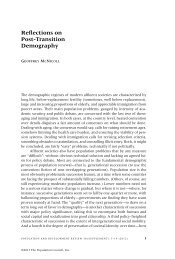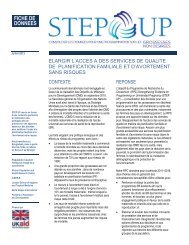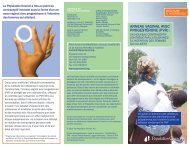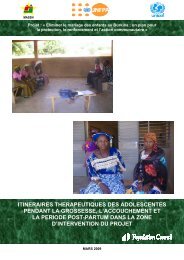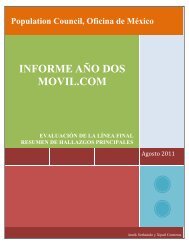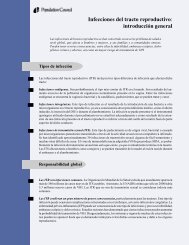Community Health Volunteer's Training Manual - Population Council
Community Health Volunteer's Training Manual - Population Council
Community Health Volunteer's Training Manual - Population Council
You also want an ePaper? Increase the reach of your titles
YUMPU automatically turns print PDFs into web optimized ePapers that Google loves.
Interpersonal Relationships<br />
Figure 1.3.7: A District Director of <strong>Health</strong> Services explaining to visitors from GHS and NGOs processes for getting a<br />
community health compound.<br />
Being a team player<br />
People like to feel involved in a team. They want you to relate to others, talk to them and<br />
encourage them to do their best. Relating helps all team members develop expertise and<br />
talents on their team. Relating means sharing our jobs such that every committee member<br />
has a part to play - and the group shares the glory or failure.<br />
Letting other people do what you can do ten times faster and better means you allow them<br />
to be trained and to gain a skill. It means your work will delay but another person has been<br />
trained to get the job done in your absence.<br />
It raises your morale and makes everyone feel important. We get the ‘we’ feeling rather than<br />
the ‘they’ feeling. Exercise 1.3.11 will show you the importance of being a team player.<br />
Exercise 1.3.11 Group work<br />
Objective<br />
1. To learn to be a team player<br />
Time: 15 minutes<br />
Questions<br />
1. How did you solve the<br />
puzzle?<br />
2. How did you function as a<br />
team?<br />
3. How did you play your part<br />
as a team member?<br />
Facilitators’ Instructions<br />
1. Cut various cards with different shapes to<br />
fit into a jig-saw puzzle<br />
2. Put the group in teams of 4. Each team<br />
members is given a number of cards<br />
3. Allow teams to solve the puzzle<br />
4. Watch how they relate to each other,<br />
leaders that emerge, disagreements, etc<br />
5. Note how long it took cooperative<br />
members to work and those who disagreed<br />
6. Discuss how the team fared in getting the<br />
puzzle solved<br />
7. Use their experience to discuss being a<br />
team player.<br />
51



